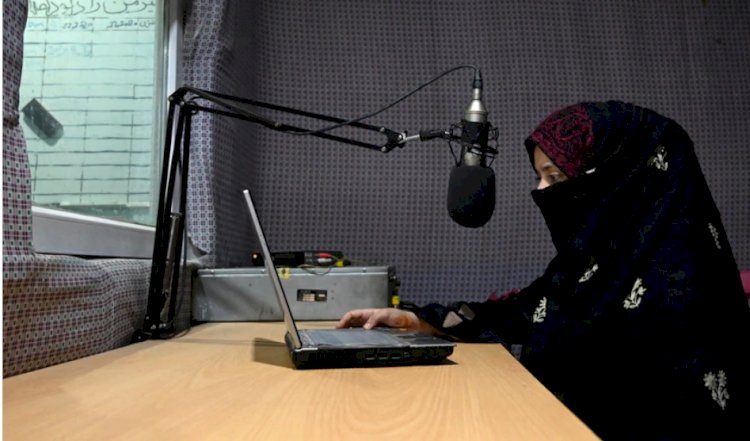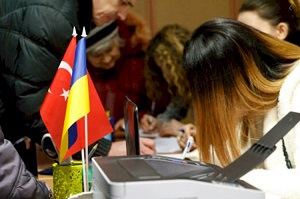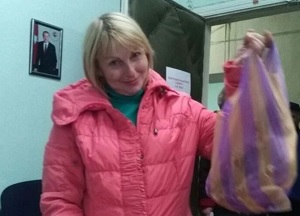Female Journalists Say Taliban Barred Them From State-Run Media
One journalist who used to work for RTA said she is worried about her former colleagues.

Female Journalists Say Taliban Barred Them From State-Run Media
WASHINGTON - At least two female journalists working for a state-owned broadcaster in Afghanistan have said the Taliban are not allowing them to work.
Since entering Kabul last Sunday, the Taliban have taken control of government agencies, including state-run media.
When journalists at the national Radio Television Afghanistan (RTA) arrived at work, some women were told they could not enter the building.
In a video posted online, RTA news anchor Shabnam Khan Dawran said that male colleagues were allowed into the building but that she was turned away.
“I was not allowed (in) despite having my office card. The male employees with office cards were able to enter the office but I was told I couldn’t continue my duty because the system (government) has changed,” Dawran, who has worked in journalism for six years, said in the video.
Another RTA anchor, Khadija Amin, told the privately owned TOLONews that she was not allowed to enter her office on Tuesday and that other colleagues were also later turned away.
Amin said they spoke with the new Taliban-appointed director, who told them the group would soon make a decision about whether they can work.
She added that the Taliban have changed RTA programs and “there are no female presenters.”
One journalist who used to work for RTA said she is worried about her former colleagues.
“Unfortunately, we are going back to the Taliban’s era. I am very concerned about the safety of my colleagues,” the journalist, who asked not to be identified, told VOA.
At their first media conference since seizing power, the Taliban said that women’s rights would be honored under Shariah, or Islamic law. The group’s spokesperson also said that media would be allowed to report freely as long as they were fair and promoted national unity.
But many journalists and media rights organizations are wary. The German public broadcaster Deutsche Welle (DW) said that Taliban fighters killed one of their journalists’ relatives this week while looking for the reporter.

The killing “is inconceivably tragic, and testifies to the acute danger in which all our employees and their families in Afghanistan find themselves," DW Director General Peter Limbourg said late Thursday, according to Reuters.
The Taliban have not commented publicly about the attack on the DW journalist’s family or on female journalists being blocked from state media. They said previously that journalists are free to work at privately owned media but that the Taliban will run state-owned outlets.
Change of programming
RTA has dozens of radio and TV channels and operates in Kabul and 32 provinces.
But when the Taliban took over, they changed the stations’ names to Shariat Ghag (Voice of Shariah) — the name of the sole radio station that existed under the group’s rule in the 1990s.
A freelance journalist in Helmand told VOA that the Taliban replaced the local RTA channel with Shariat Ghag Radio on Friday, and that the station is mainly “covering Taliban’s news and activities.”
He said the Taliban told employees of the state-owned provincial station to “broadcast based on their instructions.”
The station no longer has women presenters or voices, according to the journalist, who is not named for safety reasons.
Female journalists at privately owned stations have continued to broadcast. On Tuesday, a female anchor at TOLONews interviewed a Taliban official, in a move many considered unprecedented.
UNESCO Director-General Audrey Azoulay on Friday called for free expression and journalists’ safety to be ensured in Afghanistan.
“No one should be afraid to say what they think at this critical juncture, and the safety of all journalists, including women, must especially be guaranteed,” Azoulay said in a statement.
UNESCO added that the progress of the past 20 years “should not be undone and in particular that women journalists must be able to continue their crucial work.”
This story originated in VOA’s Afghan division.
voanews.com





































